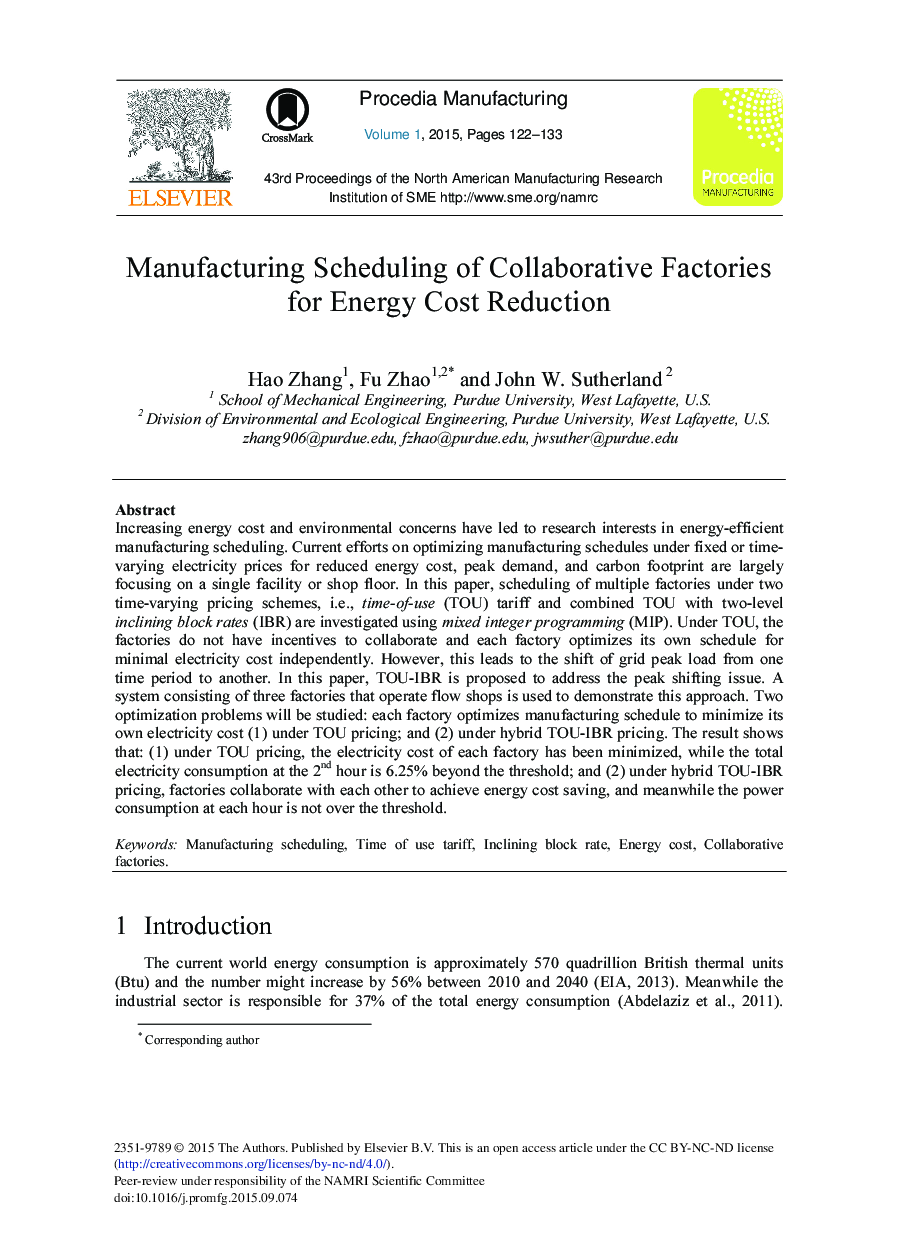| Article ID | Journal | Published Year | Pages | File Type |
|---|---|---|---|---|
| 1143686 | Procedia Manufacturing | 2015 | 12 Pages |
Increasing energy cost and environmental concerns have led to research interests in energy-efficient manufacturing scheduling. Current efforts on optimizing manufacturing schedules under fixed or time- varying electricity prices for reduced energy cost, peak demand, and carbon footprint are largely focusing on a single facility or shop floor. In this paper, scheduling of multiple factories under two time-varying pricing schemes, i.e., time-of-use (TOU) tariff and combined TOU with two-level inclining block rates (IBR) are investigated using mixed integer programming (MIP). Under TOU, the factories do not have incentives to collaborate and each factory optimizes its own schedule for minimal electricity cost independently. However, this leads to the shift of grid peak load from one time period to another. In this paper, TOU-IBR is proposed to address the peak shifting issue. A system consisting of three factories that operate flow shops is used to demonstrate this approach. Two optimization problems will be studied: each factory optimizes manufacturing schedule to minimize its own electricity cost (1) under TOU pricing; and (2) under hybrid TOU-IBR pricing. The result shows that: (1) under TOU pricing, the electricity cost of each factory has been minimized, while the total electricity consumption at the 2nd hour is 6.25% beyond the threshold; and (2) under hybrid TOU-IBR pricing, factories collaborate with each other to achieve energy cost saving, and meanwhile the power consumption at each hour is not over the threshold.
